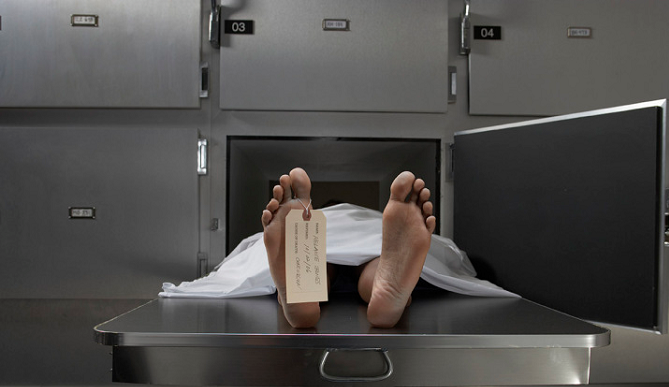
Let’s treat the dead with dignity
I woke up one morning to a very pathetic story of a young, handsome and promising military man whose life was gruesomely squeezed out by the very people he was stationed to protect.
I was more devastated because it brought back fresh memories of how a senior brother and a fellow labourer in Christ’s ministry was tortured and finally shot dead at close range right in the presence of his wife and six children at his residence, Aputuogya. May their gentle souls rest in peace.
Advertisement
As the security agencies continue to unravel the circumstances that led to the death of Captain Mahama, we can only pray to God to strengthen the bereaved family, especially the wife and young children.
Of particular concern to me and which necessitated this write-up is the incessant craze of spreading pictures and videos of the dead; in this case, Captain Mahama, on social media. It is my hope that as a society, we begin to think critically about this action.
The fundamental principle of human dignity includes not only the dignity of the person when alive, but also the dignity following his death and the dignity of the deceased person’s loved ones who cherish his memory.
If we treat a dead body as if it were no more than an inanimate thing, we dehumanise not just the person who has died, but ourselves and our fellow human beings too.
Taking pictures of dead bodies and circulating it on social media is sickening, revolting and utterly unacceptable. The likely distress caused to close associates needs no imagination.
Can we imagine what the wife, parents, family and friends will go through with the thought of these shameful pictures circulating left, right and centre?
We seem to be no longer capable of observing even the basic decencies of a civilised society.
The way we treat the dead is of greatest significance for if we do not show the dead respect, we will not show it to the living.
The rituals surrounding our treatment of dead people signify the respect we have for human life itself. That’s why we prepare them decently before burial.
We treat a dead body with this kind of reverence because to do otherwise would be to show that we have no intrinsic respect for our common humanity and for what it means to be a human being.
We re-affirm this common bond even towards the physical remains of a life that has departed, precisely to signal that to be human is to be more than a mere assembly of working parts and that we are not just a lump of flesh.
I recently watched a video of a motor accident victim who was languishing on the street crying and begging for help. It is obvious the originator of this video was interested in taking his or her phone to video, be the first to post on social media, receive “likes” and “shares” than to offer a little help to a fellow human being.
Likewise in this incident of Captain Mahama, see how a woman, born of a woman, who probably has children or is praying to God to gift her a child, was sheepishly getting close to the burning body of a fellow human being, just to get a closer shot. What is wrong with us?
Are we different from the Priest and Levite who passed by the dying man who had been attacked by armed men in the “good Samaritan” story in the Bible?
Maybe the only difference is that today’s society would have paused, taken our hi-tech phones, taken photos and videos, uploaded on social media and left him to die.
The questions - what do we gain by posting such pictures on social media? What do we lose by not posting such pictures on social media?
Would you have shared such dehumanising pictures if Captain Mahama was your husband, brother, father or friend?
It could have been you. It could have been me.
By Silas Boadu
Adansi-North-Fomena